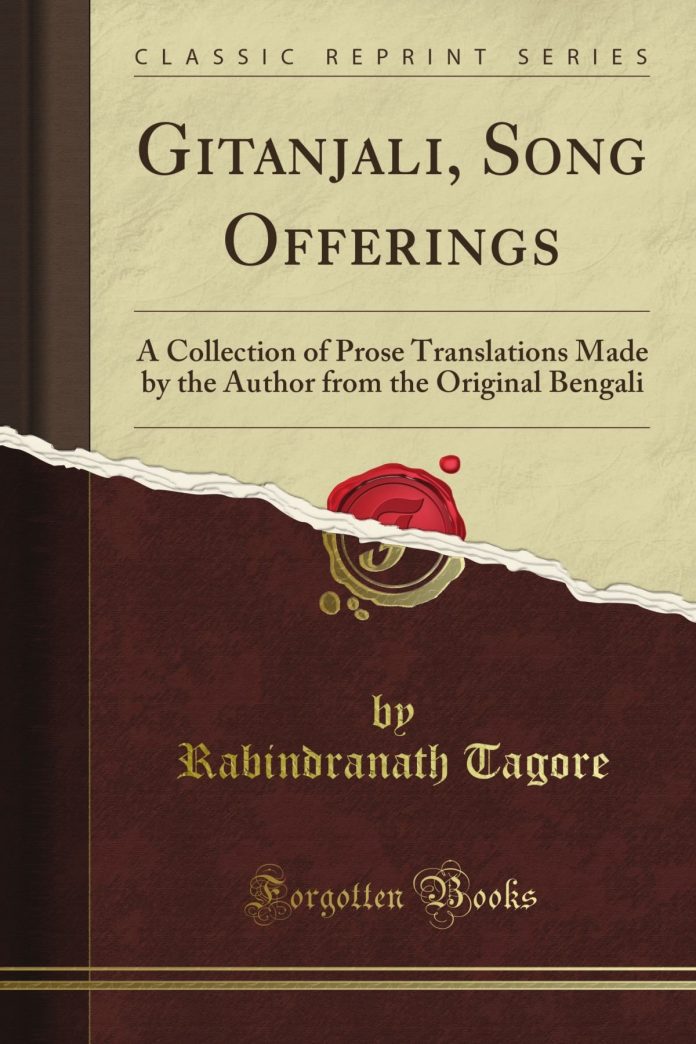Book Review: In search of the connection between songs and soul, Gitanjali, the Song Offerings by Rabindranath Tagore
The dawn of 20th century witnessed a tough conflict between imperial powers- leading the world-peace to come under threat. The snowball effect turned whole of Europe into a center of aggression. In the meantime, songs of Gitanjali (Bengali)/ Song Offerings (English) emerged as an unconditional renunciation towards Truth- the highest power! Trust on strong confidence and voice to get assimilated into the unlimited within limited, proved to be a new and eternal saying. The whole European society was surprised. Meanwhile, the Nobel Prize also came to Rabindranath Tagore for the book, because of that, in 1913.

The writing has been enriched with polyphony emphasizing mainly on nature, life, death and answer to God with so many layers that they never fail to surprise, heard or read, again and again. For many, it is a cluster of romantic expressions. While for others, this highest order philosophy reflects the ultimate divine truth of Upanishads- the God of perfection, wisdom and beauty, ending up with religion and poetry to become the same. Like an adherent of Kalidasa, the verses point out the love between human beings between the very nature of reality and the world.

Rain form as the best of both worlds romanticized in Gitanjali

A link is established between more bodily enjoyments and spiritual ones.
The opus combines the best of contemporary modern Western tradition with that of ancient Indian poetry. The Bengali versions comprise of regular metrics offering new insights to Tagore’s philosophy, the English versions on the other than are commonly more prose than poetry- that is translated by the poet himself for an authentic feel. Being hard to place the poet and his views in any specific genre, it is also a must-read for someone concerned with philosophy.

To the lord, our poet is asking for bending his head down forcefully- a picture is worth 1000 words with inner meaning to give up pride for achieving ultimate happiness and peace.

Here, the poet is praying to God for gaining power and be fearless in facing challenges in life
References:
https://arts.bdnews24.com/?p=5096
https://abookwormsmusing.wordpress.com/2013/07/03/book-review-gitanjali-by-rabindranath-tagore/
https://www.mouthshut.com/review/Gitanjali-Rabindranath-Tagore-review-pqotnptnlsm
https://penandthepad.com/info-8675090-analysis-gitanjali-tagore.html
https://www.thehindu.com/books/books-reviews/in-love-with-gitanjali/article6741927.ece
https://www.indiabookstore.net/bookish/gitanjali-rabindranath-tagore/
http://www.geetabitan.com/lyrics/A/aamar-matha-nato-kore-dao-lyric.html
http://anondogaan.blogspot.com/2015/01/bipode-more-rokkha-lyrics-translation.html
https://www.bl.uk/learning/timeline/item124197.html
https://www.amazon.com/Gitanjali-Song-Offerings-Collection-Translations/dp/1440089051




































